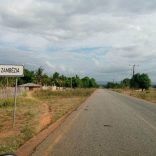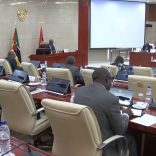Mozambique plans 4.5% rise in 2026 State spending, nearly 70% allocated to operational expenses
Mozambique: GIFiM identified movement of $7M in suspected terrorism financing from 2017 to 2024

FILE - Domestically, this movement of funds, the text explains, took place in Cabo Delgado, but also in the provinces of Zambézia, Nampula, Sofala and Manica, as well as Maputo city, with the "collaboration" of financiers based in Mozambique and in "countries affected by the phenomenon of terrorism" in Africa. [File photo: Lusa]
The Mozambican authorities have identified the movement of $7 million (€5.9 million) for terrorist financing in the country from 2017 to 2024, according to a report by the Mozambican Financial Intelligence Office (GIFiM).
In the latest Strategic Analysis Report (RAE), prepared by GIFiM, it is explained that this terrorist financing “is characterised by deposits and withdrawals”, both in cash, as well as transfers, “of small sums, which together result in large sums”, to “conceal the banking and mobile financial services systems”.
“By individuals and/or groups associated with individuals believed to be leaders of the terrorist group operating in some areas of the north of the country, and used to finance the terrorist group’s recruitment and logistics,” the document reads.
Domestically, this movement of funds, the text explains, took place in Cabo Delgado, but also in the provinces of Zambézia, Nampula, Sofala and Manica, as well as Maputo city, with the “collaboration” of financiers based in Mozambique and in “countries affected by the phenomenon of terrorism” in Africa.
“The entities suspected of carrying out acts of terrorist financing are clients of financial institutions, some traders, residents of the areas affected by terrorism, some civil servants, some members of non-profit organisations (NPOs) and some private companies, and some of their transactions have aroused suspicion,” the report points out.
This survey was based on the analysis of 86 Suspicious Operations Reports (COS), 403 Suspicious Activity Reports (CAS), eight requests for information and 2,929 reports of transfers of limited amounts, which must be reported by the financial system, as well as financial intelligence reports and the National Terrorist Financing Risk Assessment.
The “predominant delivery channels for the circulation and concealment of funds” in the financial system identified by GIFiM are deposits of funds, followed by “various intra-bank and inter-bank transfers, using fractionated transactions and passing the funds through various bank accounts”, including transfers to mobile wallets, “to lose their trace”.
They also resorted to “depositing funds with mobile financial services agents, followed by various transfers” and then “splitting them up”.
The report also points to suspicious cases, such as the “opening and possession of several e-money accounts in mobile financial services by suspicious individuals”, the accusation “by an international organisation that a certain individual is suspected of having been involved in financing a terrorist group in a country that has links with a similar group” in Mozambique.
In addition, the bank account of a public educational institution in the district of Mocímboa da Praia is alleged to have received “cash deposits in instalments/fractions made by various people, from the city of Pemba, with [an] individual of Asian descent standing out, during the period when the district of Mocímboa da Praia was under terrorist control”.
There were “transactions between [a] merchant of foreign origin, with [an] individual cited as one of the leaders of the terrorist attack on Mocímboa da Praia, as well as with people close to that leader,” adds the report, among other suspicious cases analysed since 2017, when the insurgency began in Cabo Delgado, a gas-rich province.
Meanwhile, there has been an upsurge in attacks by rebel groups since July, targeting the districts of Chiúre, Muidumbe, Quissanga, Ancuabe, Meluco and most recently Mocímboa da Praia.
In 2024 alone, at least 349 people died in attacks in northern Mozambique, most of them claimed by the extremist group Islamic State, which represents an increase of 36% on the previous year, according to a study released by the Africa Centre for Strategic Studies (ACSS), an academic institution of the US government’s Department of Defence.












Leave a Reply
Be the First to Comment!
You must be logged in to post a comment.
You must be logged in to post a comment.